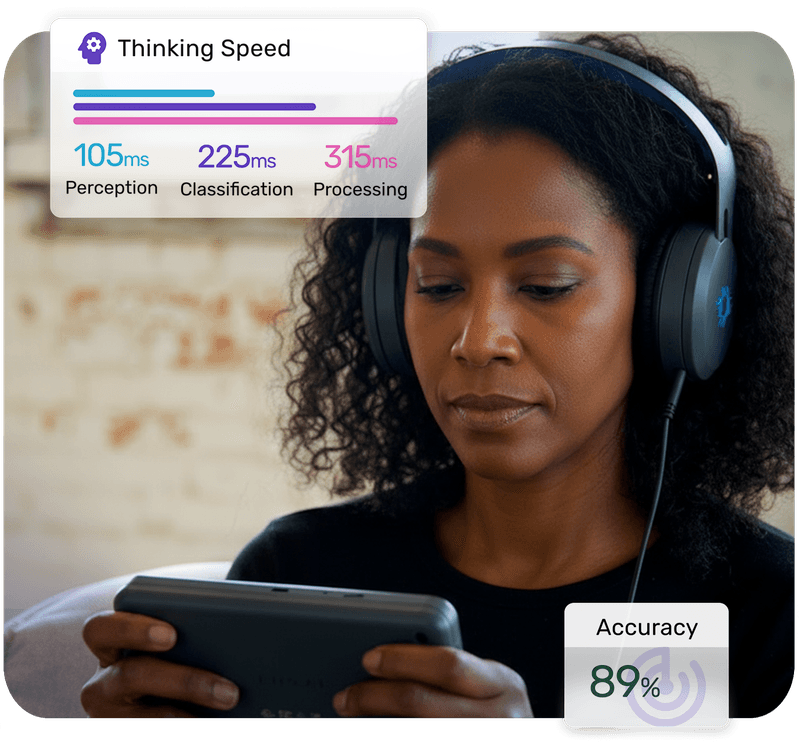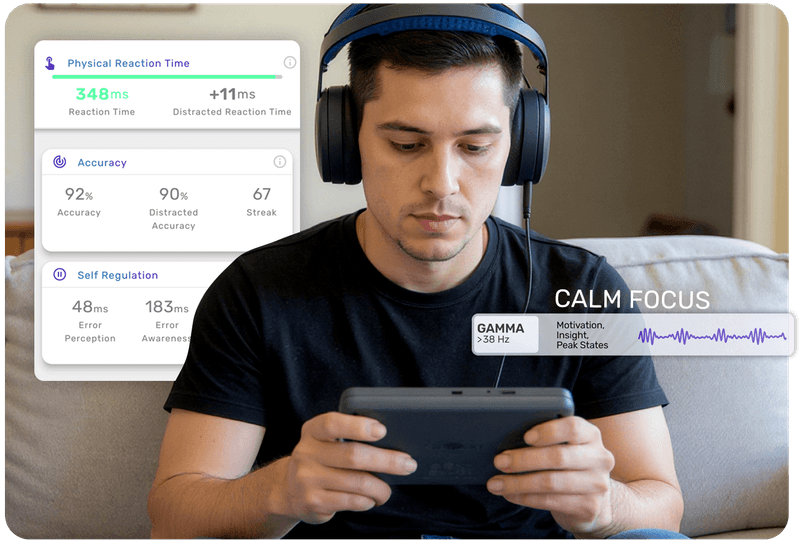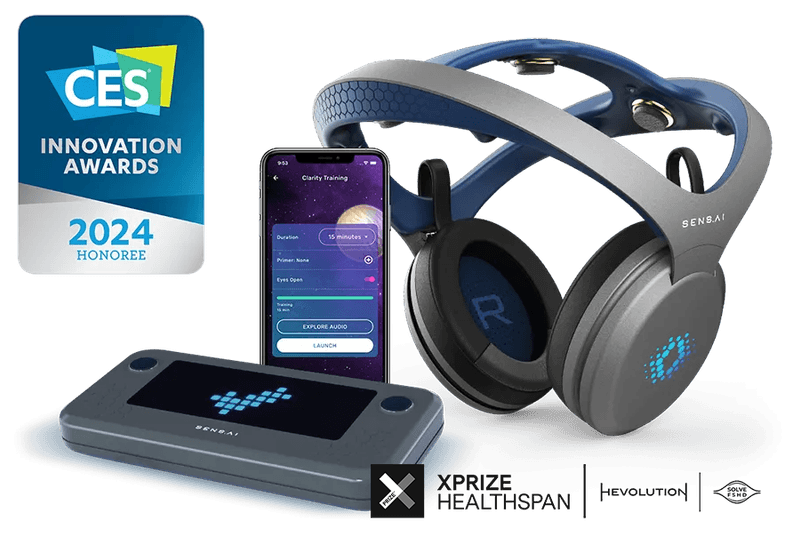Brain Performance Testing
Why EEG Isn’t Enough

Most devices show your brain’s current state — whether you're relaxed, focused, or overstimulated. Brain performance testing goes deeper, offering an objective, actionable view of the functional markers that reveal how your brain performs under challenge and over time.

Measuring Function, Not Just Activity
Tools like fMRI, PET scans, and CT scans provide detailed snapshots of brain structure or localized activity. They’re valuable for diagnostics — but they don’t show how your brain performs in real time under cognitive demand. That’s what performance testing is built for.
Many consumer neurotech tools offer insight into your brain’s state — tracking whether you’re calm, alert, or distracted based on moment-to-moment brainwave activity. While helpful for awareness, this data is reactive and variable. It shows what your brain is doing in a given moment, but not how well it performs.
Performance testing is different. It uses standardized, science-backed tasks that actively engage your brain. These tests — validated over decades — objectively measure focus, accuracy, processing speed, adaptability, and resilience. These are functional markers: they tend to decline with age or fatigue and improve only with intentional intervention.
It’s like testing your heart with a treadmill stress test instead of a resting pulse — revealing how your system operates under load.
Why It Matters
Brain performance testing offers insights that are stable, objective, and trackable over time. These metrics don’t fluctuate moment-to-moment like brainwaves. They reveal functional strengths and early signs of cognitive decline—long before they show up in daily life.
That’s why it has long been used in research labs and clinical studies: not just to observe brain patterns, but to understand real-world performance and track meaningful changes over time.
Just as athletes test endurance or pilots run simulations, performance testing reveals how your brain functions under load. It helps identify strengths and vulnerabilities and allows for tracking progress with interventions or over time.
What We Can Learn
These tests reveal functional cognitive traits such as:
How effectively you can sustain attention
How quickly and accurately you respond
How well your brain filters distractions
How adaptable your cognitive system is
These functional markers correlate with resilience, clarity, and long-term brain health.


How Brain Function Testing Works
One of the most widely used tools in brain performance testing is the ERP (Event-Related Potentials). ERPs are time-locked EEG responses to specific stimuli—capturing how your brain reacts, recovers, and processes in real-time.
A testing session may range from 15 minutes to over an hour, depending on the system. While traditional ERP analysis is conducted offline and may take weeks to return results, newer technologies are beginning to automate and accelerate that process.
Actionable Insights
Think of brain performance testing like a wind tunnel for your mind. It doesn’t just show the design—it reveals how your brain handles complexity, pressure, and change in motion.


Ready to experience Brain Performance Testing?
Whether you want better sleep, sharper focus, or to evolve into your highest potential—Sens.ai was built for your journey.
